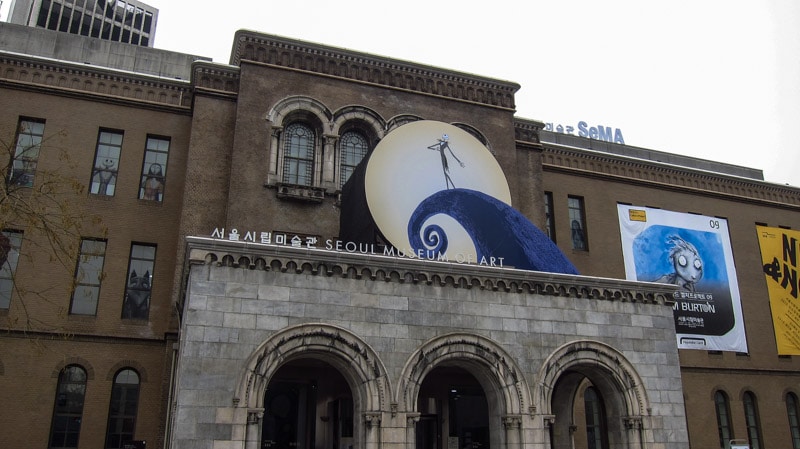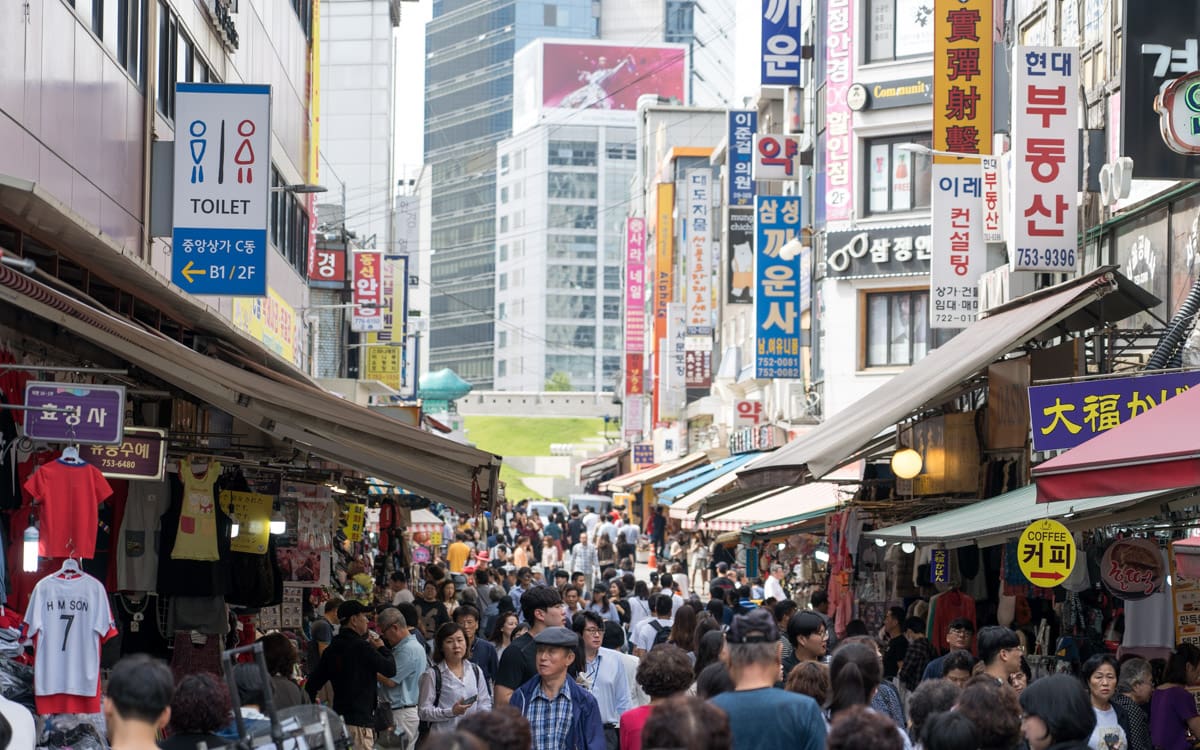
Namdaemun Market, first opened in 1964, is the largest traditional market in Korea, with over 10,000 retailers, vendors, and wholesalers. The market, spread over many blocks, is a dense maze of stalls, vendors, and restaurants. Nowhere else in Korea can you find such a large collection of interesting and traditional Korean items for sale in one place.
The market may be smaller and more compact than the sprawling Dongdaemun Market to the east. But it is still one of the best places to shop in Seoul and is busy all day.
Namdaemun Market takes its name from nearby Namdaemun Gate (Sungnyemun Gate). An arsonist destroyed the gate, Korea’s first designated National Treasure, on February 10, 2008. After years of restoration, it reopened in 2014.
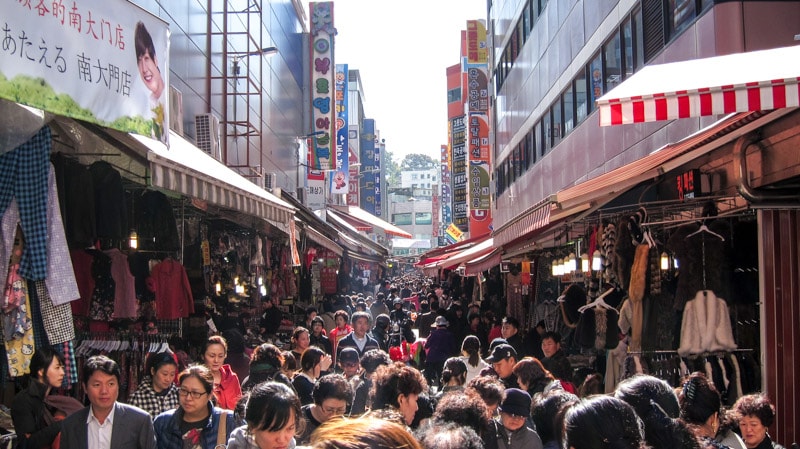
Merchants have been selling items near this location since 1414 in the early days of the Joseon Dynasty (1392-1897). Fires have damaged this area over the years, and the Japanese controlled it during their occupation of Korea.
After the Korean War, vendors illegally sold United States military goods in a back corner of the market.
In the 1960s and 1970s, Seoul rapidly expanded and began commercializing. At the time, the market offered some of the best high-quality hand-sewn clothing. In comparison, Dongdaemun Market sold lower quality and cheaper goods.
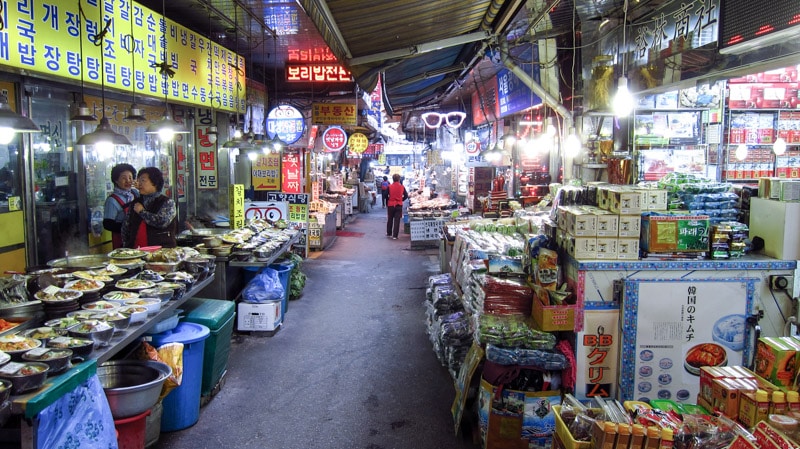
You can find almost every fashion item, jewelry, clothing, luggage, toys, stationery, carpets, hiking gear, flowers, electronics, and street foods.
Namdaemun Market offers a large collection of Korean souvenirs for those tourists who want to take something unique and fun home. If vendors sell it in Korea or elsewhere, you will most likely find it at one of the many stalls here.
Namdaemun Market features a large selection of used camera equipment. Many of these camera shops cluster near Gate 1. You can also find a street dedicated to kids’ clothing.
Many shops sell hanbok (traditional Korean dress) at prices cheaper than anywhere else in Seoul. Those looking for eyeglasses or contact lenses will also find affordable prices.
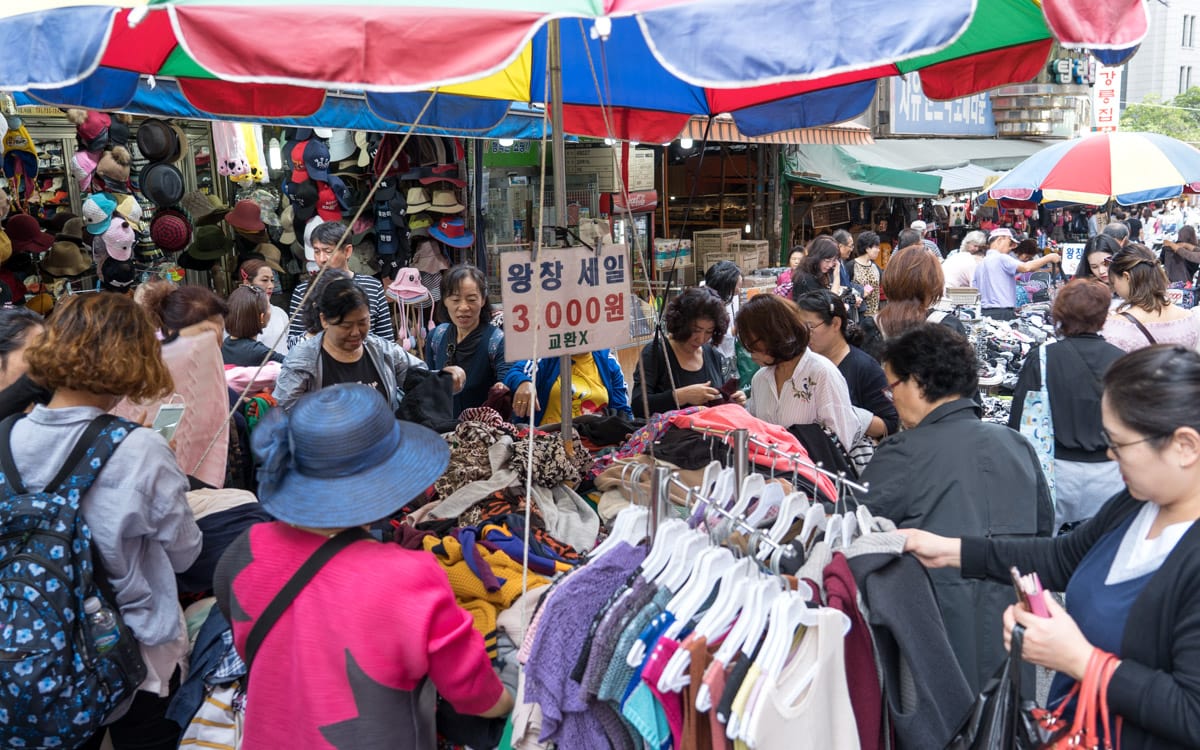
At night, while some shops close, many people stay out searching for great deals or enjoying tasty street food.
The best way to enjoy this massive market is to wander and get lost in the maze-like alleyways. Namdaemun Market is a great place to stroll through during the day or at night. Even if you are not planning to buy anything, it’s still worth exploring.
If you are hungry, you can find several tasty street food stalls outside Exit 5 of Hoehyeon Station. Many stalls sell stereotypical Korean street foods such as dumplings, noodles, and pan-fried foods.
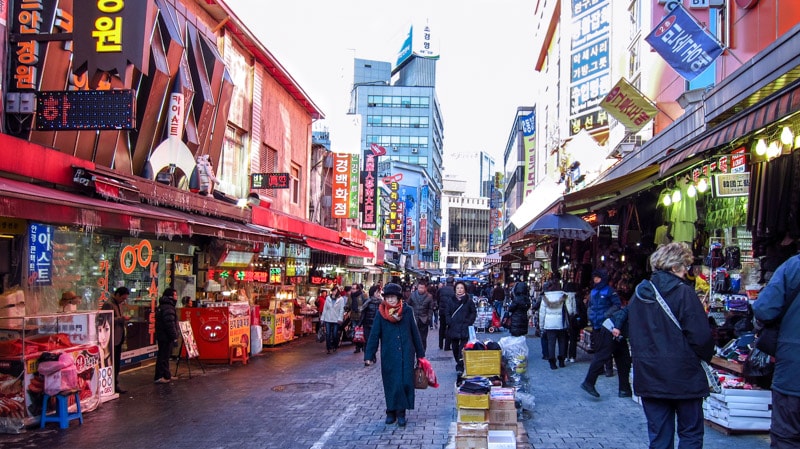
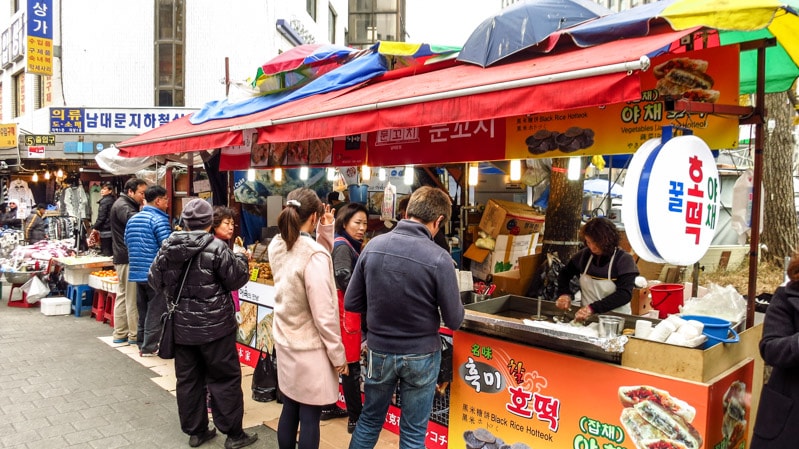
Namdaemun Market Information
Hours
Open 24 hours a day. Many retailers are closed on Sunday.
Hours of wholesalers and retailers vary. Wholesalers generally operate overnight from midnight until dawn. Most retailers open at dawn and operate all day and into the night.
If you want to have the best shopping experience, plan on visiting the market during the day.
Admission
Free
Address
21 Namdaemunsijang 4-gil, Jung-gu, Seoul, South Korea
GPS Coordinates: 37.558417, 126.977333
How to Get Here
Take Subway Line 4 to Hoehyeon Station (Exit 5).Namdaemun Market Video
Map
Official Website
https://english.visitkorea.or.kr/svc/whereToGo/locIntrdn/rgnContentsView.do?vcontsId=106358
Additional Resources
Viator by TripAdvisor
Viator is a popular online platform that helps travelers book tours, activities, and unique experiences worldwide, including in Seoul. It connects users with a wide selection of options – from sightseeing tours to cultural events and outdoor adventures – all offered by local providers.
Klook
Klook offers discounted tickets and reservations for various attractions and services in Seoul, from theme parks and museums to tours and transportation options.
Rakuten
Save money while exploring Seoul with Rakuten's cashback program. Book your hotels or other services through Rakuten and enjoy cashback rewards and exclusive deals.
If you sign up using the link below, you could earn $30 cashback on your first purchase over $30.
Book Recommendations
For an immersive guide to Seoul, many travelers choose to bring a book along. Fodor's Seoul, for example, offers detailed recommendations on sights, restaurants, maps, and travel tips.
Nearby Sights
Sungnyemun Gate (Namdaemun Gate)
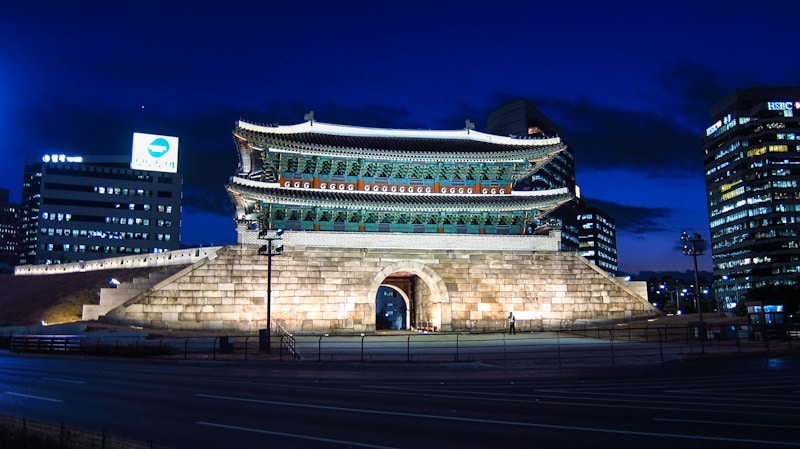
Sungnyemun Gate (Namdaemun Gate), located in central Seoul, is an important and historic gate designated the first National Treasure of South Korea. Nearby Namdaemun Market gets its name from this gate. The name Namdaemun means Gate of Exalted Ceremonies. It was known as Namdaemun during the Japanese occupation of Korea in the 20th century, therefore it is known by two names.
Bank of Korea Museum
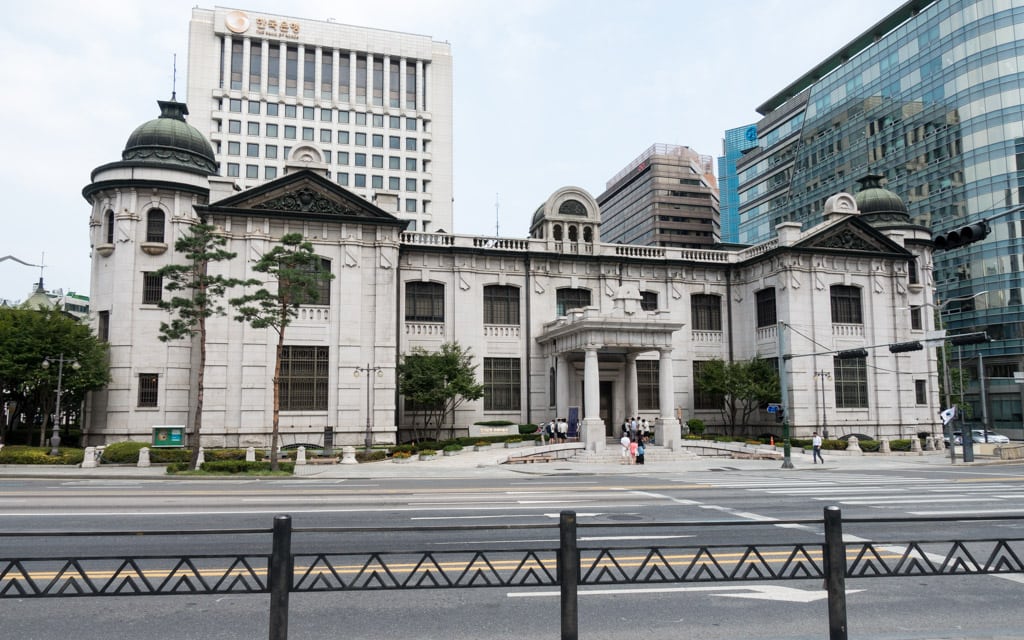
The Bank of Korea Museum displays various currencies from Korea and from around the world that date all the way back to ancient times up until present day. Construction on the building started in November, 1907 and was completed in January, 1912. The museum was designed by Japanese architect Tatsuno Kingo, who also designed Tokyo Station in Japan.
Lotte Mart at Seoul Station
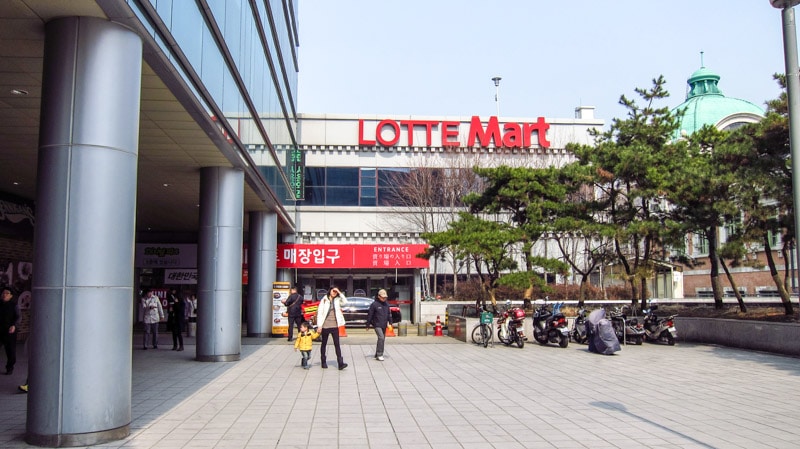
This is the Lotte Mart at Seoul Station branch. This location sells groceries, daily goods, fashion items, office supplies, apparel, jewelry, and more.
Jeongdong Observatory
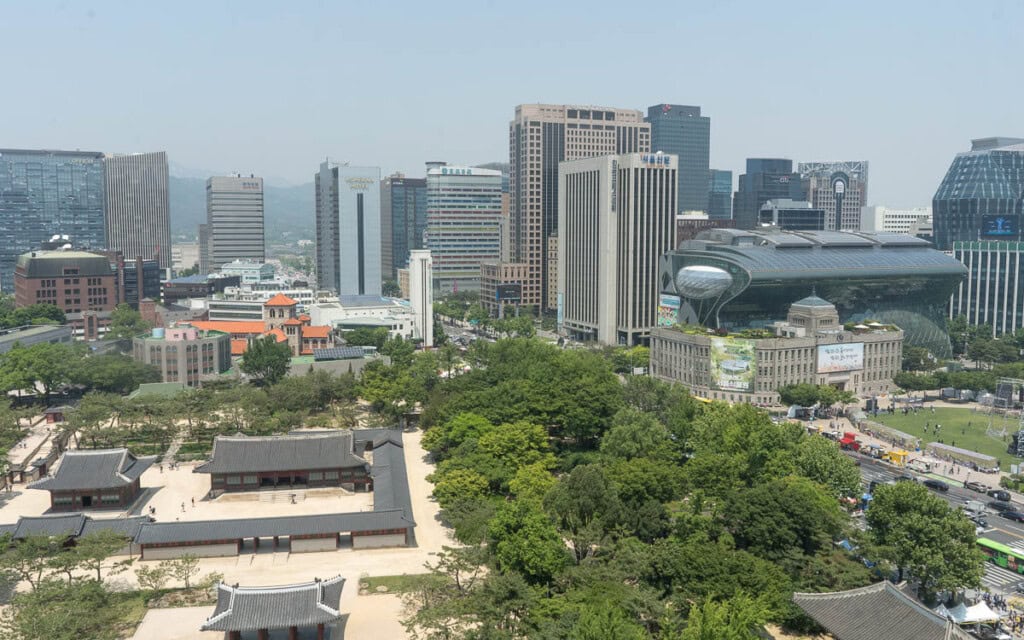
Jeongdong Observatory is a free observation deck on the 13th floor of the Seoul City Hall Seosomun Building, offering views of downtown Seoul. Unknown to most tourists, this quiet spot provides an escape from the city with a small café and views over Deoksugung Palace. If you want great views with no crowds, no admission fees, and easy access in central Seoul, Jeongdong Observatory is the perfect place to go.
Deoksugung Palace
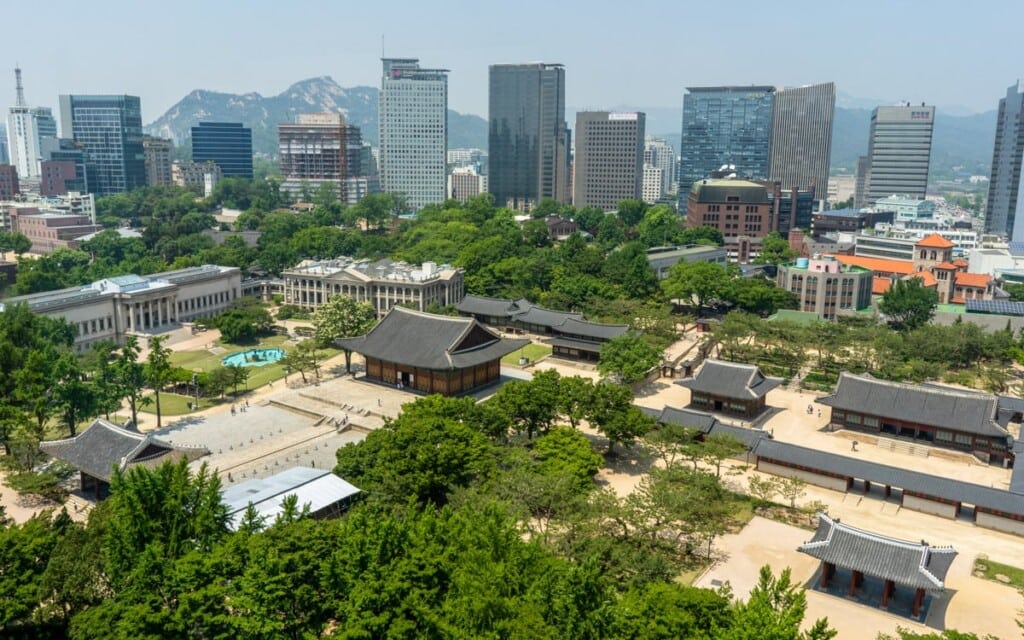
Deoksugung Palace was the location where Prince Wolsan, older brother of King Seongjong, lived. At the time, the residence was not known as a palace yet. The area consisted of residential buildings for descendants of the royal family. During the Japanese occupation of Korea in 1592, the residential buildings became a temporary royal residence after all the other palaces were destroyed by fires.
Last Updated on Feb 8, 2025
